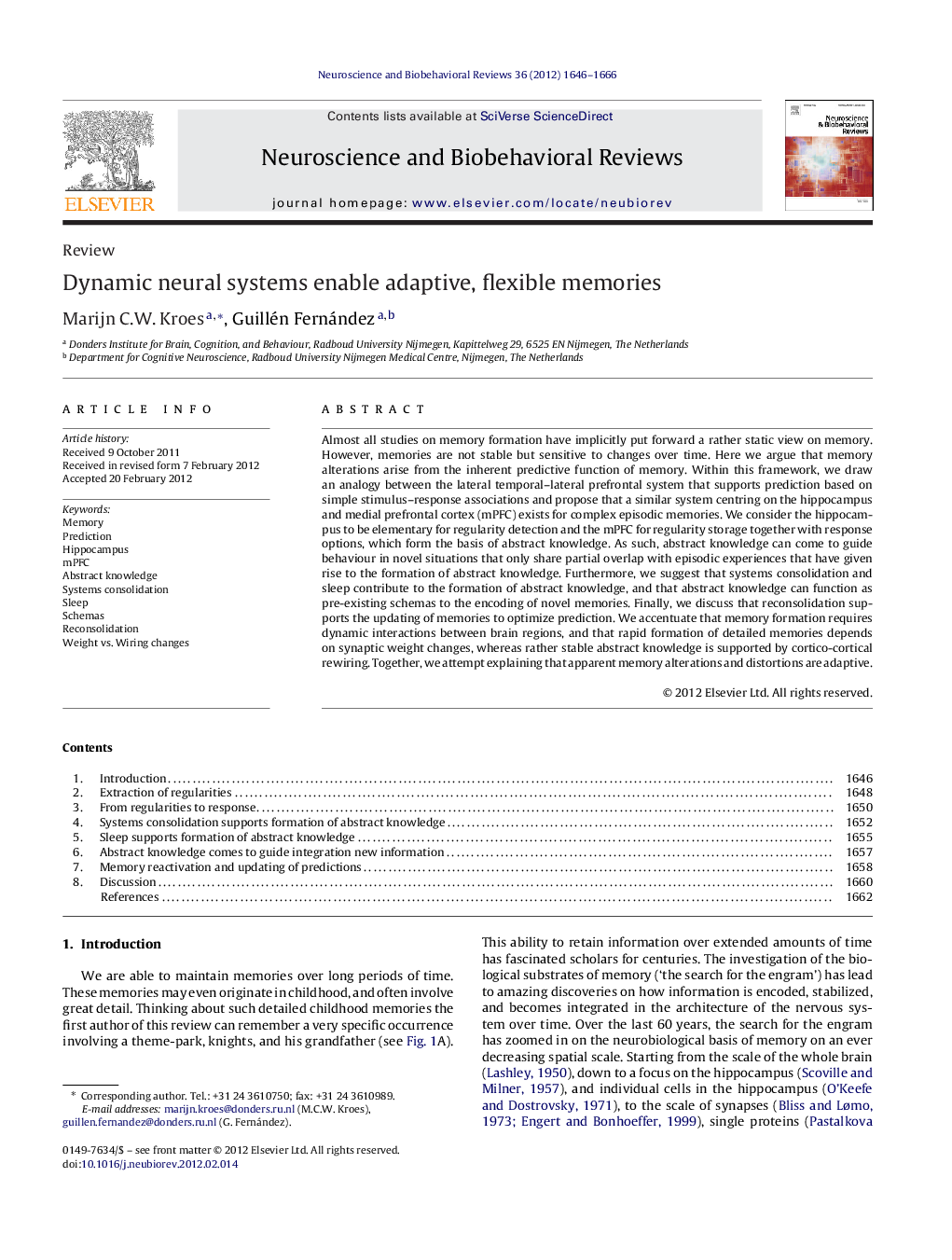| Article ID | Journal | Published Year | Pages | File Type |
|---|---|---|---|---|
| 937868 | Neuroscience & Biobehavioral Reviews | 2012 | 21 Pages |
Almost all studies on memory formation have implicitly put forward a rather static view on memory. However, memories are not stable but sensitive to changes over time. Here we argue that memory alterations arise from the inherent predictive function of memory. Within this framework, we draw an analogy between the lateral temporal–lateral prefrontal system that supports prediction based on simple stimulus–response associations and propose that a similar system centring on the hippocampus and medial prefrontal cortex (mPFC) exists for complex episodic memories. We consider the hippocampus to be elementary for regularity detection and the mPFC for regularity storage together with response options, which form the basis of abstract knowledge. As such, abstract knowledge can come to guide behaviour in novel situations that only share partial overlap with episodic experiences that have given rise to the formation of abstract knowledge. Furthermore, we suggest that systems consolidation and sleep contribute to the formation of abstract knowledge, and that abstract knowledge can function as pre-existing schemas to the encoding of novel memories. Finally, we discuss that reconsolidation supports the updating of memories to optimize prediction. We accentuate that memory formation requires dynamic interactions between brain regions, and that rapid formation of detailed memories depends on synaptic weight changes, whereas rather stable abstract knowledge is supported by cortico-cortical rewiring. Together, we attempt explaining that apparent memory alterations and distortions are adaptive.
► The function of memory is prediction and arises within a sensori-motor hierarchy. ► A hippocampus–mPFC system supports formation abstract knowledge and prediction. ► System consolidation and sleep support the formation of abstract knowledge. ► Neural weight vs. wiring changes support different aspects memory formation. ► Several memory mechanisms contribute to adaptive, flexible memories.
